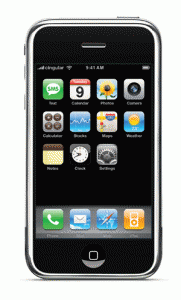August 2, 2012
Click here for the full written transcript of this podcast episode.
Aug 2, 2012 free podcast: Which Is Better: High Protein, Low Carb or High Fat, Low Carb? Also: what is hip dysplasia, how to deal with a baker's cyst, how carbs are listed on packaged food, trouble sleeping after evening workouts, what type of milk is best, HUUB websuits, should you use over the counter testosterone creams, how does Muscle Activation Technique work, and what is the ENG3?
Have a podcast question for Ben? click Ask a Podcast Question at the bottom of this page, Skype to “pacificfit” or scroll down on this post to access the free “Ask Ben” form.
If you have trouble listening, downloading, or transferring to your mp3 player just e-mail [email protected]. Also, please don't forget to leave the podcast a ranking in iTunes – it only takes a minute of your time and it helps grow our healthy community!
—————————————————–
News Flashes:
To get these and other interesting news flashes every week, follow Ben on Twitter and Google+.
- Wow! 4 weeks of echinacea supplementation worked wonders in runners.
- Attn dudes: sugary drinks at the bar, or any other “pre-sex” time is going to affect performance. And not from the alcohol per se.
- Quit sitting around at the gym.
—————————————————–
Special Announcements:
Go to www.audiblepodcast.com/ben – to get your free Audiobook today.
Need blood testing to find out your health or performance biomarkers? – Ben recommends WellnessFX
Ben is now using an Omni Blender – (50-400% less expensive than a Vitamix!) and Jessa and Ben recently shot two videos: How To Make Gluten Free Waffles and How To Make A Mexican Mocha.
You only live once! – Come with Brock and Ben to Thailand and get this Asia Pacific 70.3 Training Plan for free!
The BenGreenfieldFitness Inner Circle – is now $10! Join now at www.bengreenfieldfitness.com/innercircle
—————————————————–
Listener Q&A:
As compiled and read by Brock, the Ben Greenfield Fitness Podcast “sidekick”.
Audio Question from Jenny:
Triathlete with hip dysplasia. Not severe but it does effect her training. She feels a pinching in the front. Squatting over 90 degrees hurts. It effects her all the time (sitting for a long time hurts) even on a rest day. Any particular stretches or exercises that might help. She does the hip flexor stretch and uses a rumble roller (despite it being scary at times).
Audio Question from Andre:
He has mild left knee pain around the joint. Ran an ultra marathon in Feb and ever since then the pain has gotten better but hasn't gone away. Has runs a lot in the past and never had this issue before. Has a chronically tight IT band. Had an MRI that only detected a tiny Baker Cyst. He wants to do squats and lungs but can't do them or the knee flairs up again. Every time he races it hurts a lot again. He has a few races coming up and wants to get healed.
Audio Question from Ty:
On the ingredient list, how do you differentiate between a simple and a complex carbohydrate?
~ Ben’s Top 10 Healthy Packaged Foods
Eve asks:
I train for and do Olympic/5150 triathlons. I seem to do well with a hard training efforts over lunch, but if I do a track interval training in the evening for 50-60 min, or even swim intervals, I often mess up my sleep (elevated heartrate, chestpain and restlessness during the night). I'm assuming I have an unfavourable hormonal response – T3 crash, adrenaline to mobilize glycogen etc. I love group training (track and swim) in the evening, but if I cannot get the sleep issue sorted, I have to get back to morning and lunch training. Do you have any ideas on how I can increase my “tolerance” for evening training, except lowering intensity?
Kate says:
I have been suffering from a pain in my hips and knees whilst running for the past year and have recently visited a Sports Therapist in order to get to the bottom of the problem. He used Muscle Activation Techniques to reduce tension in my body and I could definitely see an improvement after just an hour. I found this technique very strange as he worked on an area in my neck to activate a muscle in my leg. I was wondering whether you have had much experience of MAT and what your thoughts on the technique are?
~ In my response, I mention my MAT podcast interview.
Ben writes:
What type of milk would you recommend for a child and would that recommendation change based off age? I'm curious about raw milk vs. goats milk vs. almond milk vs. coconut milk.
Nadaleen says:
I've been trying to follow a low carb high protein diet in order to lose weight (unsuccessful thus far). I did a 4 mile running race this morning and noticed my breath began to really smell during it, and afterwards my husband commented that I needed to brush my teeth. Reading up on it, it seems that it could be either dehydration, ketosis, or someone said if your body doesn't burn fat well, it could be that I'm burning muscle and not fat. I often get shaky during long rides as well, and feel that whatever I eat is not being absorbed by my body. I have noticed as I've switched to protein from carbs that I get less shaky and am also less hungry on long rides. So my body is shifting, I'm just not sure how, whether it is shifting in the right direction, and if I should be more patient with fat loss.
Kenny says:
Two questions:
1) huub wetsuits – marketing seems like a perfect fit for me. Is it all hype?
2) testosterone – I am 42 year old male and my level's slightly below normal. If I take an over the counter cream or supplement is this going to give me more energy? Make me stronger? Is it considered cheating in my training?
Paige asks:
Is it possible to cycle ketogenic periods? For example, fasting all night, exercising and then waiting until dinner to break your keto state. If so, would it be beneficial? Or would you benefit just as much from a fasted workout? Would this kind of cycle cause fat gain since you are eating an increased amount during keto state. Also, how could you monitor to know you are in this state? Would the strips be enough or should you monitor other things as well?
~ In my response to Paige, I mention http://www.lowcarbtriathlete.com
Jim asks:
I have a question about a machine a friend uses – the ENG3. They swear by it (says it helps their lungs and recovery time) but when I looked it up I don't really know what to make of it (except that it's expensive). If you have any info that would be great. They said I could give it a try but I always like to know what up before I jump in.
Prior to asking your question, do a search in upper right hand corner of this website for the keywords associated with your question. Many of the questions we receive have already been answered here at Ben Greenfield Fitness!
====================================== ======================================



Is a low carb diet recommended for skinny people or "hard gainers"? I practice endurance sports (triathlon) and i'm very skinny, in fact i'm always looking for ways to gain some weight (no success yet), so, would a low carb diet make any good?
Yes, but I cover this in my http://www.GetFitGuy.com book – you can get away with MORE than fatter people or people who aren't hard gainers…closer to about 100-150g/day…depending on activity levels…
Excellent. Thank you!
Got the book, and got one question: Im an ectomorph, but i do triathlons (and iroman) and, in order to gain some weight, its advised to lower my cardio sessions. Is there a way to gain weight, being an ectomorph and still get enough cardio sesions to prepare for ironman (most of my "cardio" sesiones include HIIT about an hour long).
Thank you!
Yes, Gerry. That's why I wrote Tri-Ripped at http://www.tri-ripped.com – it takes quite a bit of program tweaking!
Does this book exist in an audio book format? I know there is alot of interactive portions of the book but I have a hard time retaining information unless I can hear the words while following along visually
It's not.
Ozone (O3) is not the same as singlet oxygen (O).
I don't think I said it was the same as singlet oxygen. But ozone can react with the unsaturated fatty acids of the lipid layer in cellular membranes, and form lipid peroxidation products that can include singlet oxygen…
The downside of not eating wheat. I experienced similar (but less severe) symptoms this week teaching an avalanche course at a lodge in the mountains. The food was good but I was a day or two (too late!) figuring out how to eat around the(unexceptional) pasta and bread. Talk about farts…
From WADA World Anti-Doping Programme TUE Guidelines
Version 6.0 January 2012
The Use of any Prohibited Substance or Prohibited Method to increase “low-normal” levels of any
endogenous hormone is not considered an acceptable Therapeutic intervention.” (Article 4.1b of the International Standard for TUEs.)
So not sure TUE appropriate for low testosterone unless there is disease/pathology
Yes, that's exactly what I said in the podcast –> you need TUE plus an actual diagnosis.